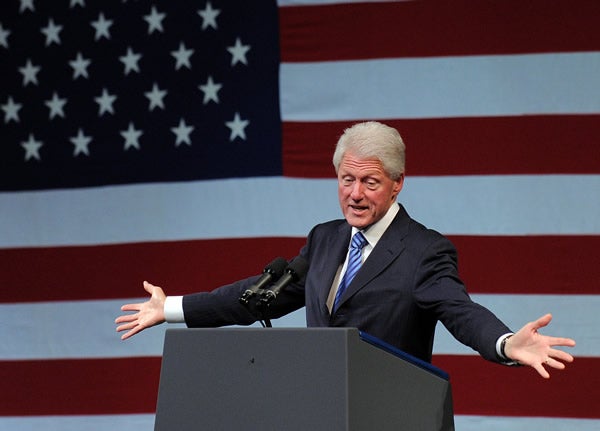Yesterday, former President Bill Clinton agreed with the strong message The Heritage Foundation has sent Congress and the President: Prevent Taxmageddon from taking place—and do it now. The 42nd President stated:
What I think we need to do is find some way to avoid the fiscal cliff, to avoid doing anything that would contract the economy now, and then deal with what’s necessary in the long term debt-reduction plans as soon as they can, which presumably would be after the election.
Taxmageddon, while only part of the oncoming fiscal cliff, is a gargantuan, $494 billion tax increase that will affect Americans of all income levels. Taxmageddon largely consists of the expiration of the Bush tax cuts and other long-standing policies that expire at the end of the year.
Clinton is right to push for avoiding this fiscal cliff. As he advised, lawmakers do need to put forth solutions to attain long-term deficit and debt reduction, but Taxmageddon is the most pressing matter at hand and should be dealt with now. (Article continued below chart)
With his statement, Clinton joins the ranks of other enlightened lawmakers, including House Speaker John Boehner (R–OH), and former Governor Tim Pawlenty (R–MN). All realize the danger that an economy already struggling to recover would be exposed to if Taxmageddon becomes reality.
Taxmageddon is already hurting the economy. Mohammad El-Erian, CEO of Pimco, the world’s largest bond investment firm, explained that the uncertainty created by Taxmageddon likely means that businesses are delaying investments and hiring, meaning less economic growth and fewer jobs in America. The very weak jobs report this May showed just that, as Heritage’s James Sherk and Rea Hederman point out:
Quite simply, businesses cannot properly price the cost and profit of new activities and will choose to hold cash rather than engage in new job-creating activities.
Earlier this year, Federal Reserve chairman Ben Bernanke first mentioned that the country was headed toward a “fiscal cliff” so big that the Federal Reserve would be unable to avert the economic consequences caused by Congress’s inaction:
I think it’s very important to say that if no action were to be taken by the fiscal authorities, the size of the fiscal cliff is such that there’s I think absolutely no chance that the Federal Reserve could or would have any ability whatsoever to offset that effect on the economy.
As Heritage Foundation expert J. D. Foster has written, fixing Taxmageddon is Congress’s summer job. The longer it waits, the more damage to the economy will be done. How many more voices need to join the growing chorus to stop Taxmageddon now before Congress and the President get the message?






























